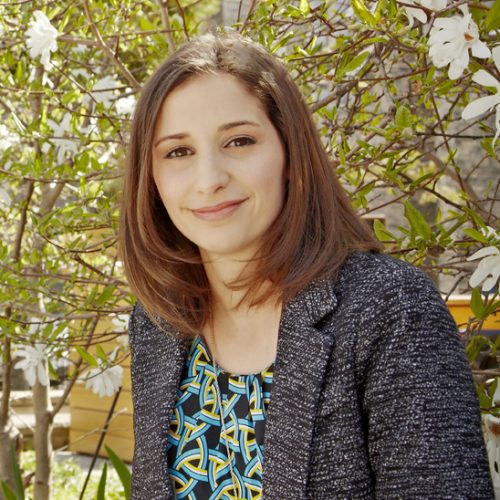Michelle Afkhami

Michelle Afkhami
Former Postdoctoral Fellow, Ecology & Evolutionary Biology
“My U of T experience has definitely benefited me.”
I completed bachelor’s and master’s degrees in Ecology and Evolutionary Biology at Rice University in Houston, Texas followed by a PhD in Population Biology at University of California, Davis. Throughout my research, I have been interested in positive species interactions, especially mutualisms—species interactions in which all organisms benefit from the association.
As a graduate student, and now as a postdoctoral fellow, I studied mutualistic interactions between plants and microbes. Before coming to Toronto, I studied endophytic fungi, which live inside virtually all plants, but it has only been in recent years that we have begun to understand their importance for biodiversity and agriculture.
I came to Toronto to work with Professor John Stinchcombe to study two other types of ubiquitous plant-associated microbes: nitrogen-fixing bacteria and mycorrhizal fungi. The goal of our research is to understand how plants balance multiple mutualistic partners and the genomic basis of the plant’s response.
My career aspirations are twofold: to become a professor at a research university and to be a leader in the study of positive species interactions. I came to the University of Toronto because it is suited to help me progress toward these goals. For example, I am benefiting from interacting with world leaders in the study of mutualism. However, the top reason I came to U of T is that the Ecology and Evolutionary Biology department is internationally recognized for its high-quality evolutionary ecology and genomics research.
One of my central goals is to gain training in cutting-edge genomics techniques, something with which U of T has a great deal of experience. My supervisor, Professor Stinchcombe, has experience with Medicago-rhizobia interactions and expertise in quantitative genetics and ecological genomics, which is extremely helpful for achieving my research goals. He is supportive not only in terms of our research, but also in terms of my career development and encouraging work-life balance.
The Stinchcombe lab is small enough for substantial interaction among lab members, yet large enough to support a critical mass of highly qualified people working on similar problems.
Another point about the department as a whole: the faculty, postdocs, graduate students, and staff have been generous with their time, resources, and advice. Further, I have access to the computing power, greenhouse facilities, and lab tools needed to conduct my research.
While it is still a bit early to tell how everything will work out on the job front, I think my U of T experience has definitely benefited me. In particular, it has allowed me to gain experience with international collaborations between researchers in Canada and the US, an invaluable skill in today’s scientific world.
